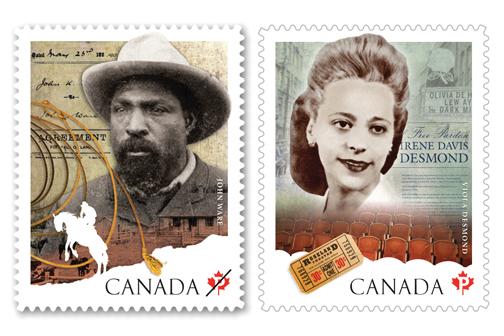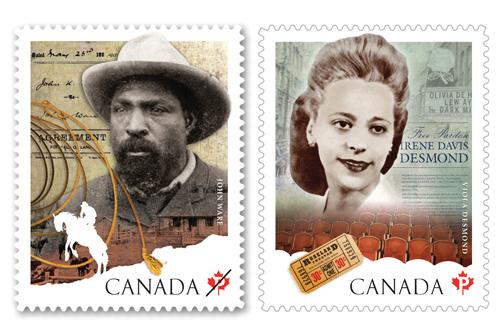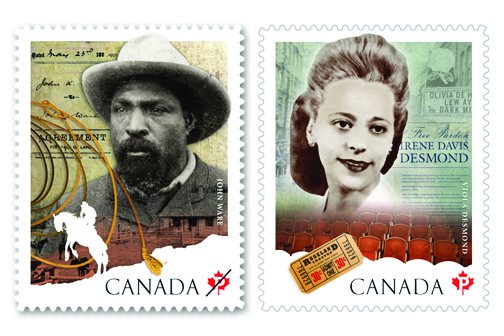Legendary African-Canadian Viola Desmond, often referred to as “Canada’s Rosa Parks,” is being featured on a line of postage stamps by Canada Post in honour of Black History Month.
In 1946, nine years before Rosa Parks’ iconic refusal to give up her bus seat to a white passenger, businesswoman Viola Desmond was getting thrown out of a Nova Scotia movie theatre for sitting in the “whites only” section.
Desmond was dragged from the theatre by police and spent the night in jail, where she chose to sit upright in the cell with her white gloves on in a show of dignity. She was fined $20 and convicted of defrauding the Government of Nova Scotia of the additional one-cent tax for seats in the “whites-only” section.
Desmond decided to fight the charges in the courts, changing public opinion locally and internationally and raising awareness about the reality of Canadian segregation along the way.
“I don’t think that it was her intention to set out to fight for integration, but her story and her experience and her process helped to underscore how much had to happen in order to bring about change in Canada,” says Rosemary Sadlier, president of the Ontario Black History Society (OBHS).
Sadlier says that while the stamps help promote nationwide awareness of Black History Month, most Canadians have little-to-no knowledge of the role African-Canadians played in shaping the country.
“Black history is not something that is required in school,” she says.
“How would Canadians even begin to appreciate [black history] if they can’t have that basic understanding that there were black people here to begin with?”
Black History Month was originally intended to be a culmination of year-long education and awareness efforts, Sadlier adds, but too often gets attention only once a year.
“The expectation by the originator in 1926 is that people would be working, learning, studying, sharing, gathering, and documenting black history year round,” she says.
“So if we can get back to that idea that February is not the only time, but the pinnacle of a year spent learning and doing, then we would be much further ahead.”
Sadlier is herself a groundbreaking African-Canadian. She has authored multiple books on black history in Canada, and, with the OBHS, was instrumental in initiating the formal celebration of February as Black History Month in Toronto, which was eventually adopted across the rest Canada.
Her work and writing have garnered numerous awards, including the Order of Ontario.
From Slavery to Folk Hero
Along with Viola Desmond, famed Alberta cowboy John Ware is also featured in the Canada Post commemorative stamps.
Ware was born into slavery in South Carolina. In 1882, he was hired to help bring 3,000 head of cattle from the U.S. to what later became the Bar U Ranch in Southern Alberta.
Known for his strength, character and skill as a horseman, Ware helped establish the ranching industry in the prairies and founded two ranches of his own in the Foothills.
He also pioneered steer-wrestling, winning his first competition at the 1893 Calgary Fair and setting a precedent for a future highlight of the Calgary Stampede.
But perhaps his greatest achievement was his role in changing public opinion toward the black community at a time when people of colour were emerging from slavery in the U.S. and were virtually unknown in western Canada.
He died in 1905 when his horse tripped and fell, crushing him. By the time of his death, Ware had become a folk hero and one of the most well-known and respected ranchers in western Canada.
“Inspirational Canadians like Viola Desmond and John Ware are part of Canada’s rich culture and history,” Peter MacKay, Minister of National Defence and Regional Minister for Nova Scotia, said in a press release.
“These commemorative stamps are a wonderful tribute to these heroes who have shaped and continue to define how we live as Canadians.”






